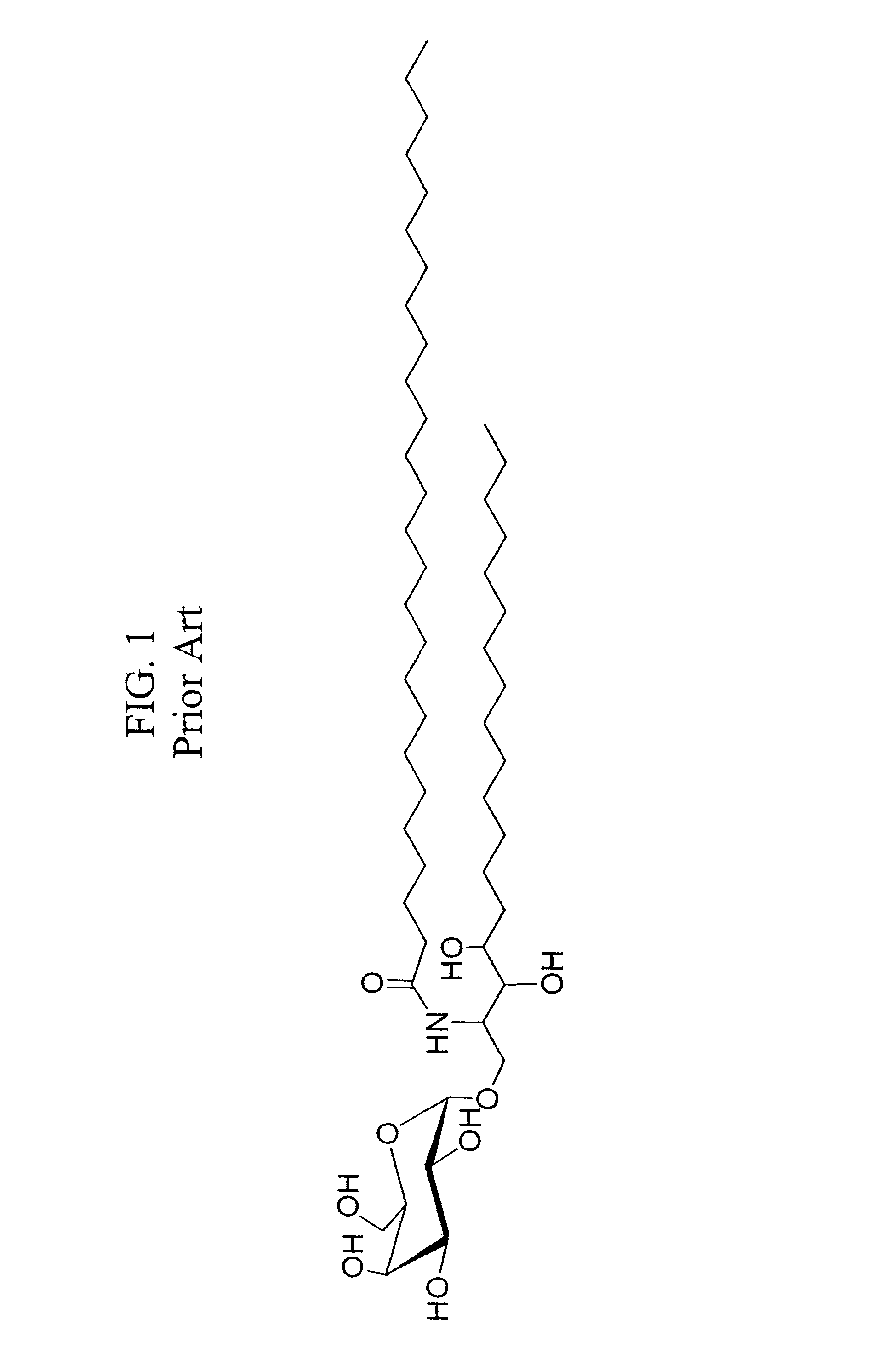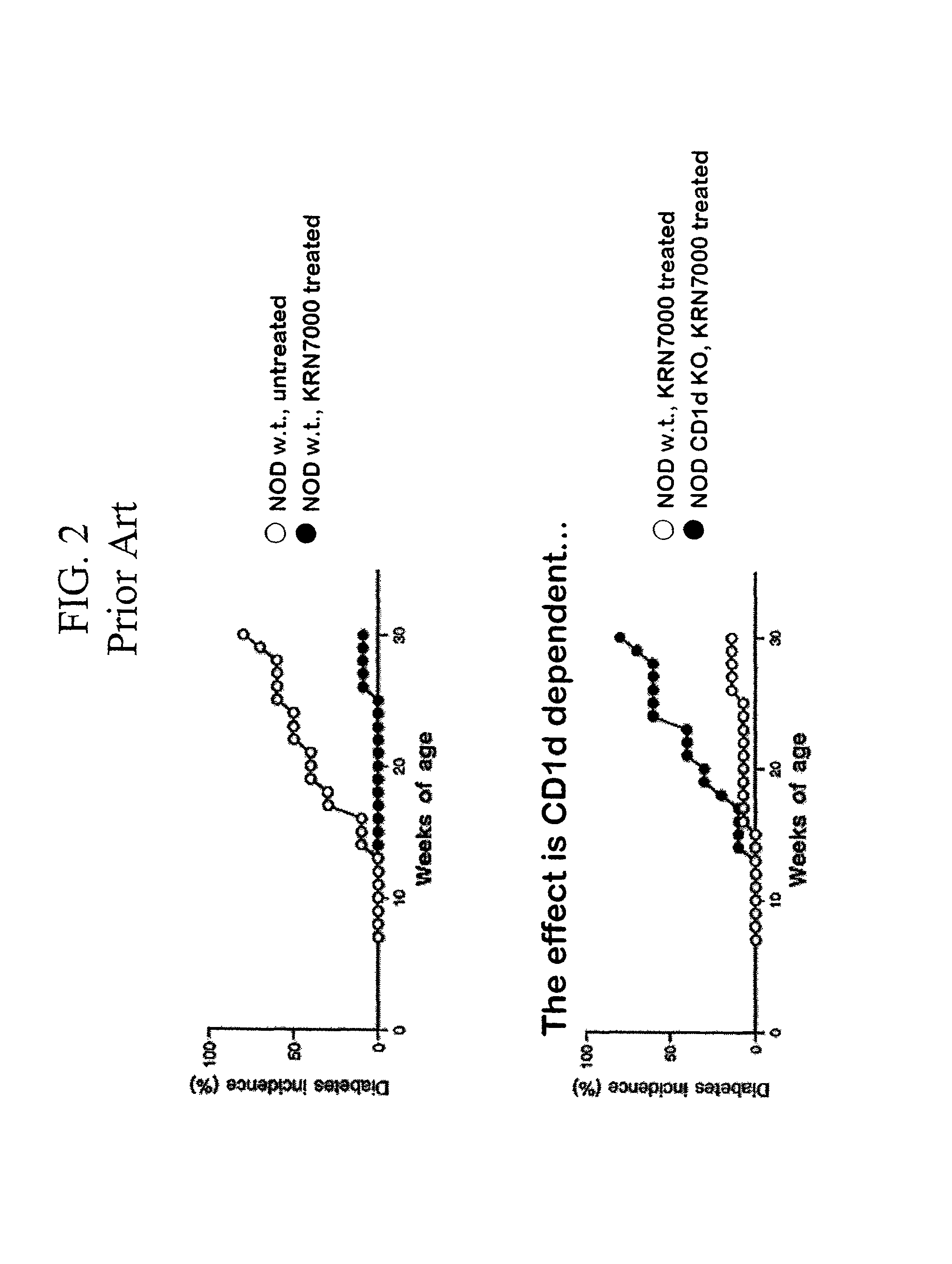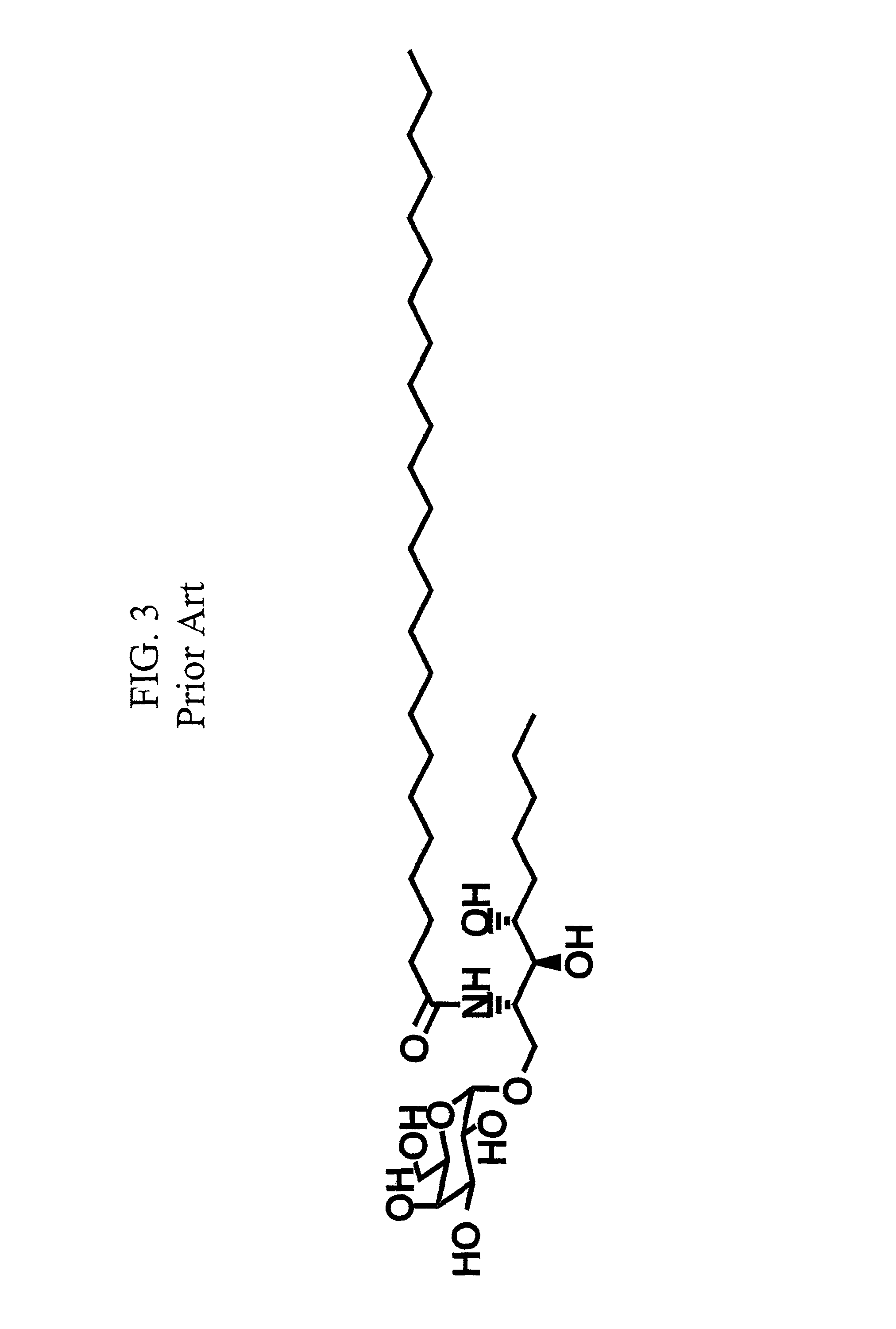Ceramide derivatives as modulators of immunity and autoimmunity
a technology of ceramide derivatives and immune cells, applied in the field of activation of immune cells, can solve the problems of insufficient poor understanding of the etiology of autoimmune diseases, and limited analysis
- Summary
- Abstract
- Description
- Claims
- Application Information
AI Technical Summary
Benefits of technology
Problems solved by technology
Method used
Image
Examples
examples
[0309]Amino Substituted Derivatives of α-galactosylceramides and Other α-Glycosylceramides as Modulators of Immunity and Autoimmunity
[0310]Production and identification of novel amino substituted forms of α-galactosylceramide with immunomodulatory activities. The discovery of OCH and its enhanced properties at preventing autoimmune tissue damage provided a strong stimulus for our group to undertake the evaluation of a larger number of analogues based on the KRN7000 structure. The strategy we chose was to develop analogues based on modifications or substitutions of the amino-linked fatty acid chain of KRN7000. This choice was guided by two considerations. First of all, some work had already begun on modification of the sphingosine base by other investigators with the discovery of OCH, so this area was not entirely novel. See, also, U.S. Pat. No. 5,936,076. In contrast, very little previous work had appeared on modifications of the fatty acid chain. Fatty acid chain length variations ...
PUM
| Property | Measurement | Unit |
|---|---|---|
| temperature | aaaaa | aaaaa |
| body weight | aaaaa | aaaaa |
| α | aaaaa | aaaaa |
Abstract
Description
Claims
Application Information
 Login to View More
Login to View More - R&D
- Intellectual Property
- Life Sciences
- Materials
- Tech Scout
- Unparalleled Data Quality
- Higher Quality Content
- 60% Fewer Hallucinations
Browse by: Latest US Patents, China's latest patents, Technical Efficacy Thesaurus, Application Domain, Technology Topic, Popular Technical Reports.
© 2025 PatSnap. All rights reserved.Legal|Privacy policy|Modern Slavery Act Transparency Statement|Sitemap|About US| Contact US: help@patsnap.com



